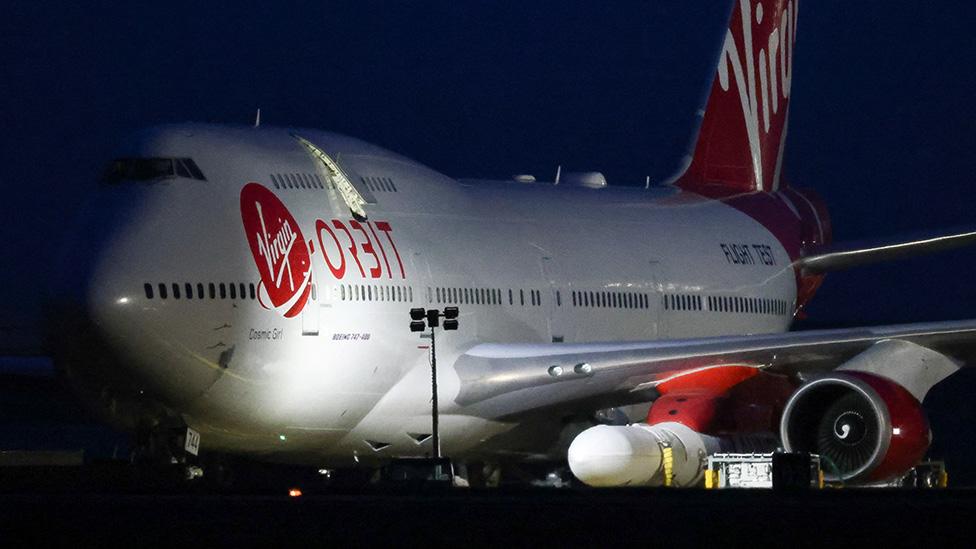Spaceport Cornwall reflects on big year and looks ahead
- Published

Ross Hulbert said the spaceport is attracting businesses to Cornwall
Spaceport Cornwall says it can "confidently look forward" following a year that saw it facilitate the first rocket launch into space from UK soil, despite it ending in failure.
Virgin Orbit's January launch failed when the rocket suffered an anomaly, but bosses say the process attracted potential partners for future launches.
No launches are planned for 2024, but 2025 is a possibility.
Head of engagement Ross Hulbert said it "achieved what we needed to achieve".
A new operation facility opened in April and already has 13 tenants from the space sector, along with others on the wider site, at Cornwall Airport Newquay.
"Spaceport Cornwall's business model has always been to maximise the excitement we get from the launch activity to bring other partners in," Mr Hulbert said.
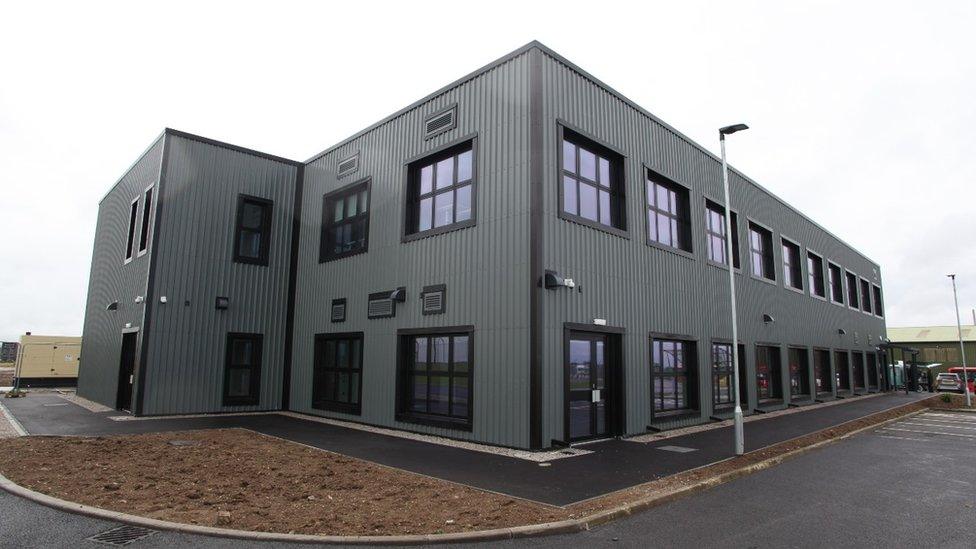
A new operation facility opened in April
On 9 January, Virgin Orbit launched its Start Me Up mission, carrying its launcher vehicle beneath a jumbo jet.
The vehicle was successfully released and reached space, but an anomaly occurred before the satellites inside could be deployed into orbit.
The plane returned to the Spaceport where a team of about 60 Virgin Orbit engineers were based, alongside Spaceport staff.
In the weeks that followed, news of Virgin Orbit's financial troubles surfaced, culminating in the company shutting down in May.

The integration facility is a space where satellites can be loaded onto launch vehicles
Mr Hulbert said: "We woke up the next morning and we were the first licensed UK spaceport, we were fully operational and ready to work with a whole host of partners.
"So yes, it was clearly disappointing in one sense, but we proved our capability on that pathfinder launch, and it enabled us to move on."
New partners include Canadian company Space Engine Systems which is using a hardened aircraft hangar at the airport to test its single stage orbit space plane known as the Hello Series.
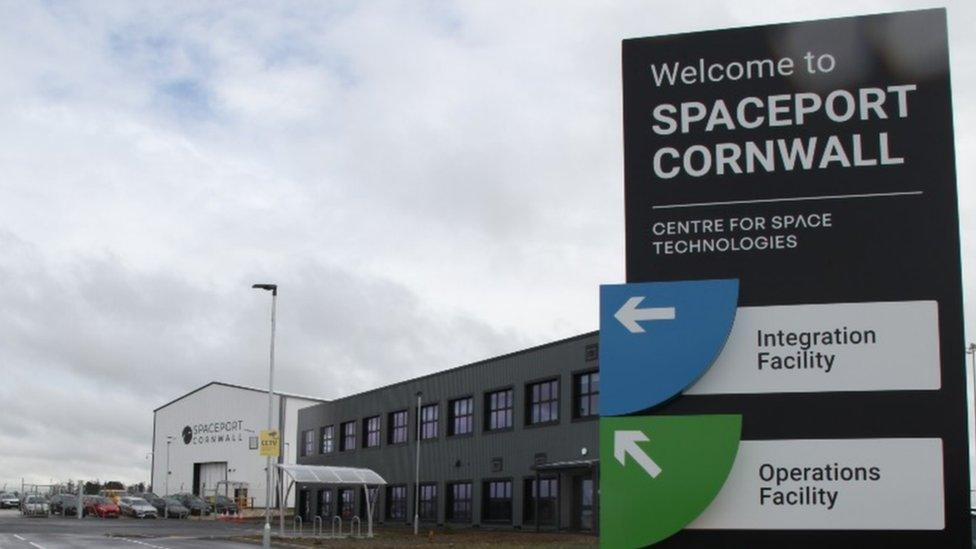
Spaceport Cornwall was the first in the UK to get an operating licence
"This is much more sort of what you'd imagine when you were a kid about what a space plane is," Mr Hulbert said.
"It takes off from a runway, it goes and conducts its missions into space or does hypersonic travel as well.
"And then it will return to the runway in Cornwall."
No space launches are expected in 2024, but there is another unnamed partner expected to join in the coming weeks that has aspirations of taking off in 2025.
The space cluster in Cornwall is growing, but Mr Hulbert accepts it is launching to space that really captures the imagination.
"We know that's what the public expect, and our fans expect to see from a spaceport.
"You know it's great that we are offering all these economic opportunities, and our buildings and people are being employed here.
"But of course, when they think of a spaceport they expect to be able to see launches going into space. So it's great that we definitely will still be able to support that activity."
He added: "So while Virgin themselves will not be returning here, the eyes of the space launch world have been on us, and anyone that wants to launch anything into orbit in Europe will have to do it from Spaceport Cornwall.
"We're still very much the premier choice for anyone looking at doing any sort of European mission."
Earlier this month, the SaxaVord site in Shetland became the second UK spaceport licensee, and the first for vertical launches.
Rather than any competition in a UK space race, Mr Hulbert said he was "so so pleased for them to have reached that exciting milestone".
"We are absolutely sharing in their success and toasting UK space excellence - it's absolutely a good thing for us to see SaxaVord doing well as well."

Follow BBC News South West on X (formerly Twitter), external, Facebook, external and Instagram, external. Send your story ideas to spotlight@bbc.co.uk
Related topics
- Published19 May 2023
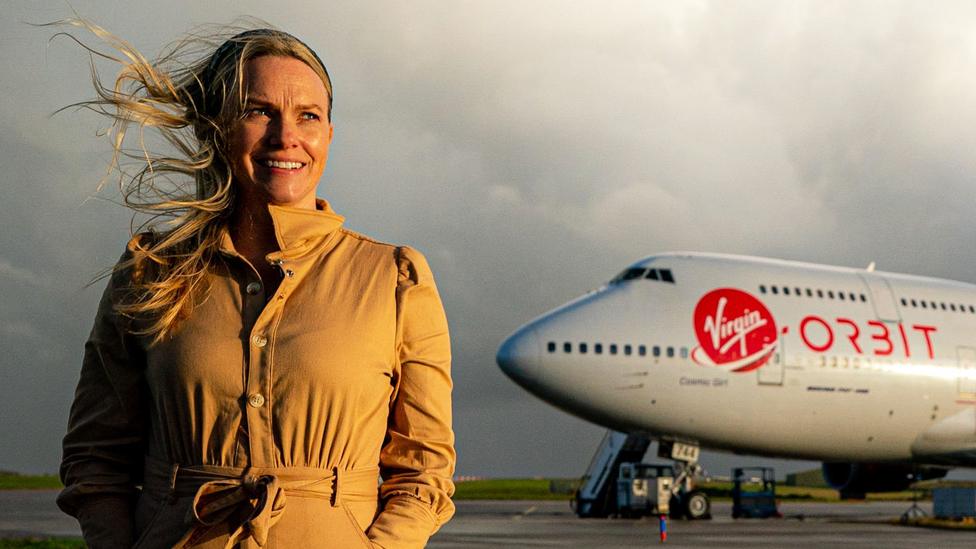
- Published16 March 2023
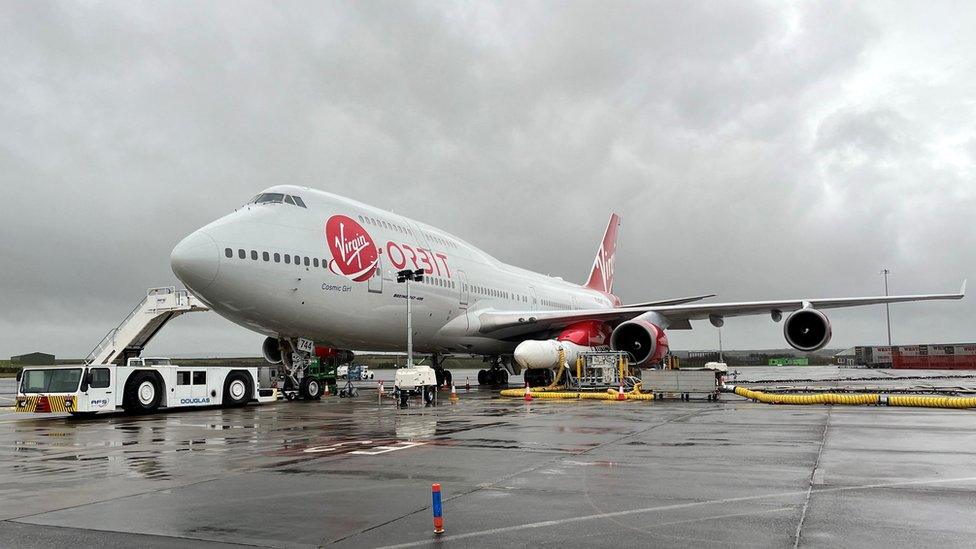
- Published15 February 2023
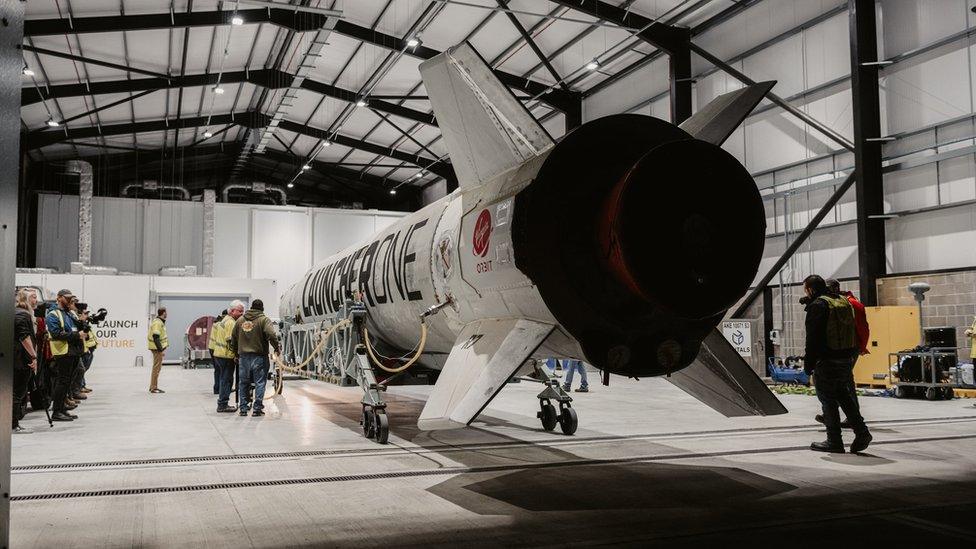
- Published10 January 2023
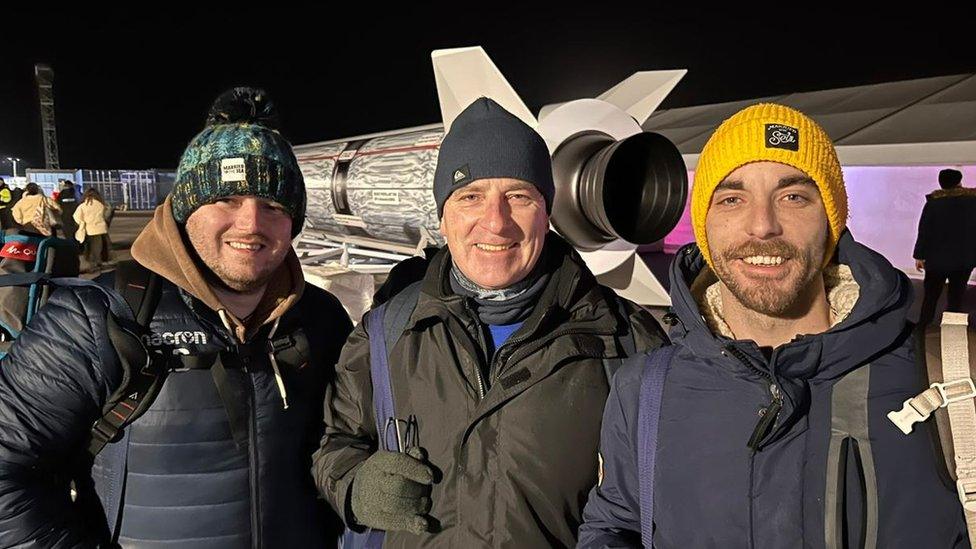
- Published10 January 2023
